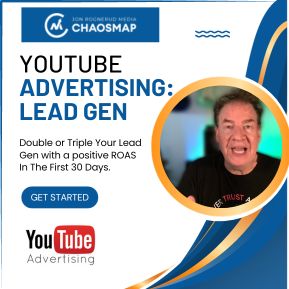When building your strategy for a search engine optimization (SEO) campaign, it is vital to be clear on the success metrics and results. You know that.
However, it’s not enough.

You should also make sure to get buy-in and build better understanding of SEO goals at every key level of your organization.
From the CEO, VP level and down into the ranks of Information Technology (IT) and related teams that will support the SEO effort.
An educated marketing team will understand that a keyword ranking alone is not as important as the growing of a business from more sales. This has to be communicated and reinforced at every turn.
But, you must find better alternatives and seek to understand the complete picture.
What are some effective ways to begin the search engine optimization goal setting?
While top level executives may believe a top ranking is necessary (because the competition is showing for same or similar keywords, and ego-boosting) and that the brand is losing value for it, you should instead ask them: “what is the main objective of the organization?” Not the mission or vision statement (good for longer term and company culture alignment & development), but the actual goals for the company. Bottom line stuff.
Define your value.
While not everything is, or must be about selling something on the first web visit – you must define what it means to your audience, your organization, and how it works over time.For example, for an information-based business built for training purposes, your goal should be to provide education and teaching. (A good model for any business today). The actual sale is a softer one in terms of the time-series events, but it eventually will happen.
Build unique positioning.
Use your marketing channels to demonstrate your unique positioning. In the SEO world, we talk much about websites and related assets (images, videos, etc).How does your website currently demonstrate and provide that value? And, can that be tracked to the overall and specific goals?
You should be able to report on activities like filling out forms and downloading information. As basic as that may sound, many businesses don’t.
If you are tracking specific landing pages, are you watching and tuning for improved conversions?
Do you know what traffic drives those pages?
How can you reduce the cost-per-lead?
Here are some good value SEO goals to look for:
- Improvement in overall indexation and search-friendliness. How many valuable new pages are now seen by search engines compared to where you started? Did you resolve technical (page) roadblocks?
- How many keywords are driving traffic now vs. when you began? An increased, aggregate value of keywords will drive and convert traffic better if done right.
- How are citations and references improving? What are high-value partners you have not considered to date?
- Are social referrers moving up? Social signals are valuable for promotional and search engine trust now, and over time.
- Are pages viewed per visit improving from SEO efforts? The usage of your site matters.
- Are visitors coming back to your site? If they are not, imagine what the search engines ‘feel about it’?
A pure keyword phrase search engine ranking is not an SEO goal by itself. Being ranked in the top for a keyword doesn’t necessarily bring you more business (sales).
Changing the minds of executives and key stake-holders will be a hard road for you.
Most still include and require the ranking reports. Spend more focused time educating your audience and clients about the importance of the complete picture. It should help build the bottom line as new initiatives and metrics are included.
It takes time. Some will never fully embrace the ‘rankings don’t matter’ discussion – no matter what you do.
Jon Rognerud and Chaosmap work with Fortune 500 companies, associations and entrepreneurs to create digital traffic strategies that scale up members, customers, leads and sales with profitable returns. Mr. Rognerud wrote a best-selling book (Buy On Amazon), “The Ultimate Guide To Optimizing Your Website” (Entrepreneur). Connect directly here.







